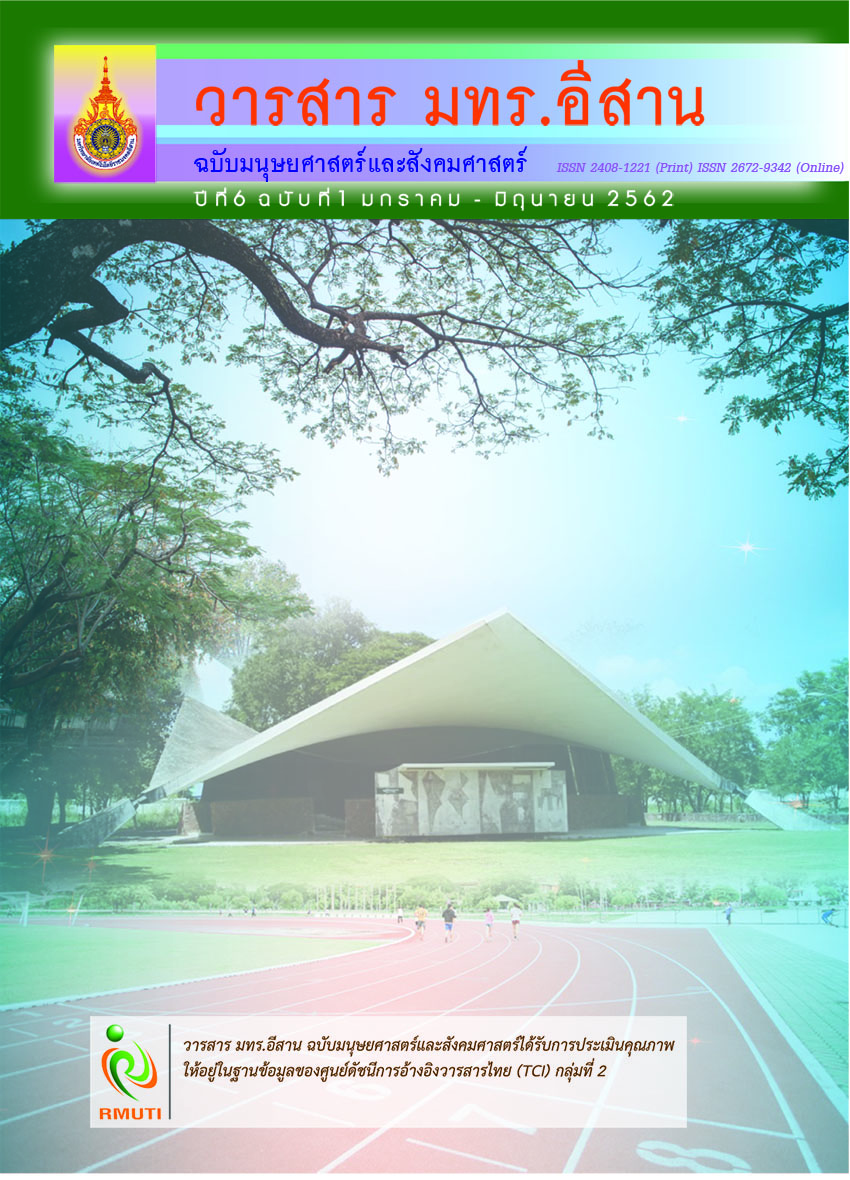Effects of Capacity Building Curriculum of Intelligence Networks for Community Health Risk Factor Management on Competency-based Performance Development among Mohanamai
Main Article Content
Abstract
From the past until the present, public health network of Thailand has used “Mohanamai” to call health personel who works in primary health care level. This quasi-experimental research using one group (pre-posttest designed) aimed to study the effectiveness of Capacity Building Curriculum of Intelligence Networks for Community Health Risk Factor Management on competency-based performance development among Mohanamai. The samples were 27 Mohanamai who received training of Capacity Building Curriculum of Intelligence Networks for Community Health Risk Factor Management. The curriculum incuded (1) five-training courses with 2 - 3 days per course, (2) budget support for project implementation of community health risk factor management including tobacco, accident, achohol drinking and chronic diseaseses, (3) empowerment by visiting at community implementation with care and appreciation concepts, (4) share and learn activities for 2 days in each region and (5) health media development and presentation for 2 days. Research instrument was questionnaire developed by researchers. The data analysis included descriptive statistics: percentage, mean and standard deviation. The inferential statisticts included t-test (paird t-test). The results revealed that average posttest scores of the Mohanamai competencies in analysis and evaluation, community health risk factor management, collaboration both inside and outside institution, management (self-control, vision, leadership and systems thinking, change agent, teamwork, planning, financial planning and management and cultural completencies) and academic competency (information technology, routine to research (R2R) of community health risk factor management and knowledge management of community health risk factor management) were higher than those average pre-test scores at p-value 0.001. Thus, Capacity Building Curriculum of Intelligence Networks for Community Health Risk Factor Management had eff ects to enhance Mohanamai performance competencies in prevention and management of community health risk factor.
Article Details
บทความที่ได้รับการตีพิมพ์เป็นลิขสิทธิ์ของมหาวิทยาลัยเทคโนโลยีราชมงคลอีสาน
ข้อความที่ปรากฏในบทความแต่ละเรื่องในวารสารวิชาการเล่มนี้เป็นความคิดเห็นส่วนตัวของผู้เขียนแต่ละท่านไม่เกี่ยวข้องกับมหาวิทยาลัยเทคโนโลยีราชมงคลอีสานและคณาจารย์ท่านอื่นๆในมหาวิทยาลัยฯ แต่อย่างใด ความรับผิดชอบองค์ประกอบทั้งหมดของบทความแต่ละเรื่องเป็นของผู้เขียนแต่ละท่าน หากมีความผิดพลาดใดๆ ผู้เขียนแต่ละท่านจะรับผิดชอบบทความของตนเองแต่ผู้เดียว
References
ขวัญใจ จิรัฐจินดา. (2557). รูปแบบการเสริมสร้างสมรรถนะหลักสำหรับบุคลากรสาธารณสุขของโรงพยาบาลส่งเสริมสุขภาพตำบล. วิทยานิพนธ์หลักสูตรปริญญาปรัชญาดุษฎีบัณฑิต สาขาวิชาพัฒนศึกษา ภาควิชาพื้นฐานทาง การศึกษา บัณฑิตวิทยาลัย หมาวิทยาลัยศิลปากร.
ฐนันดร์ศักดิ์ บวรนันทกุล. (2557). การเสริมสร้างศักยภาพการพัฒนาทรัพยากรมนุษย์. วารสารวิชาการมหาวิทยาลัยปทุมธานี. ปีที่ 6, ฉบับที่ 2, หน้า 186-193
จุฑาทิพย์ พิทักษ์. (2559). คู่มือเยี่ยมเสริมพลัง. นนทบุรี: สำนักบริหารการสาธารณสุข
บุญเรือง ขาวนวล (บรรณาธิการ). (2557). การจัดการเชิงเครือข่ายเพื่อลดปัจจัยเสี่ยงด้านสุขภาพ: บทเรียนจากเครือข่ายหมออนามัย. นนทบุรี: สมาคมหมออนามัย
บุษกร วัฒนบุตร. (2559). การพัฒนาศักยภาพทุนมนุษย์ในศตวรรษที่ 21. ธรรมทรรศน์. ปีที่ 16, ฉบับที่ 2, หน้า 163-176
ประเวศน์ มหารัตน์สกุล. (2542). การบริหารทรัพยากรมนุษย์: แนวทางใหม่. กรุงเทพมหานคร: สมาคมส่งเสริมเทคโนโลยี (ไทย-ญี่ปุ่น)
ปิยะนุช พรหมสาขา ณ สกลนคร จิราพร วรวงศ์ ศิราณี ศรีหาภาค ธานี กล่อมใจ และพิทยา ศรีเมือง. (2559). การเรียนรู้การบริหารจดัการระบบสุขภาพอำเภอ: บทบาทและมุมมองของอาจารย์หรือนักวิชาการสถาบันการศึกษา. วารสารพยาบาลกระทรวงสาธารณสุข. ปีที่ 26, ฉบับที่ 3, หน้า 27-39
ภูษิต ประคองสาย (บรรณาธิการ). (2559). การสาธารณสุขไทย 2554 - 2558. นนทบุรี: สำนักนโยบายและยุทธศาสตร์ สำนักงานปลัดกระทรวงสาธารณสุข
มหาวิทยาลัยสุโขทัยธรรมาธิราช. (2557). สังคมผู้สูงอายุ: นัยต่อการพัฒนาเศรษฐกิจ. เข้าถึงเมื่อ (20 มกราคม 2560). เข้าถึงได้จาก (https://www.stou.ac.th/stouonline/lom/data/sec/Lom12/05-01.html)
สุกัญญา รัศมีธรรมโชติ. (2549). แนวทางการพัฒนาศักยภาพมนุษย์ Competency Based Learning. พิมพ์ครั้งที่ 3. กรุงเทพมหานคร: ศิริพัฒนาอินเตอร์พริ๊นท์
สุรเกียรติ อาชานานุภาพ. (2551). บทบาทใหม่ของหออนามัย. วารสารคลินิก. ฉบับที่ 287, หน้า 12-13
Hair, J. F., Black, W. C., Babin, B. J, and Adderson, R. E. (2010). Multivariate Data Analysis, 7th Edition. New York: Pearson.
Public Health Foundation. (2014). Core Competencies for Public Health Professionals. Access (19 May 2017). Available (https://www.phf.org/resourcestools/Documents/Core_Competencies_for_Public_Health_Professionals_2014June.pdf).
Waltz, C. F., Strickland, O. L., and Lenz, E. R. (2005). Measurement in nursing and health research. (3rd ed.) New York: Springer Publishing Co.


